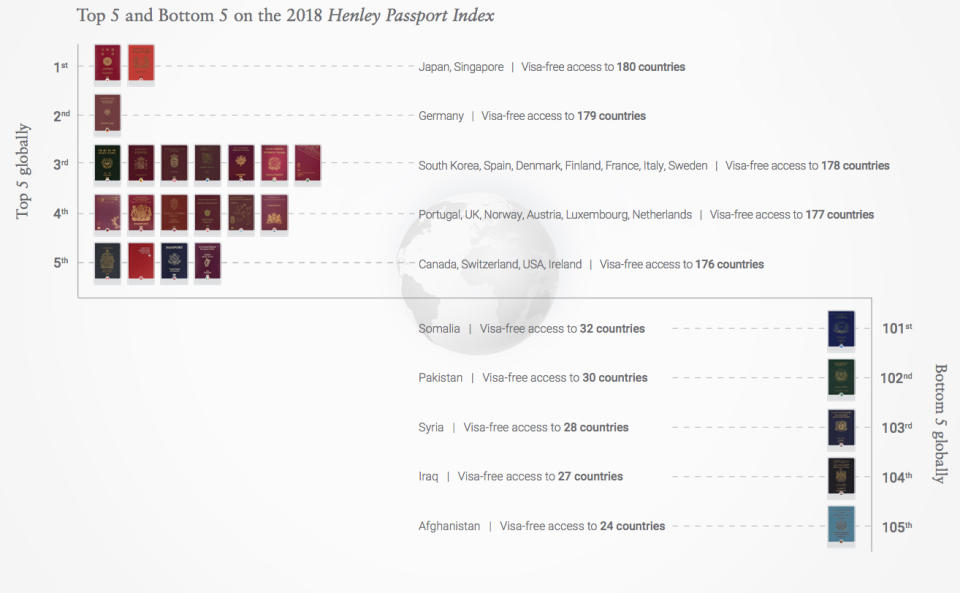Most powerful passport in the world....isn't Canadian
A new index of the strongest passports in the world has placed Canada as the fifth most powerful passport to have. The list put out by Henley & Partners, a a global citizenship and residence advisory firm, reaffirmed the strength of many historically powerful passports at a time when travel appears to be getting more restricted globally.
The strength of a country’s passport was also determined partially by its economic strength. Therefore, when looking at the list of most powerful passports, it’s not surprising to see that most of the countries are members of the G7 or the OECD, a club of high-income countries in North America, Western Europe, Australia and Asia.

But even outside those two organizations, the differences between the most powerful passports wasn’t that large. For instance, the difference in access to visa-free travel between Japan, which took the top ranking, and Slovakia, Lithuania and Latvia, which were tied for tenth place, was only ten countries.
In first place was Japan, which had visa-free access to 189 countries. In second were Germany and Japan, with visa-free entry to 188 countries. In third, it was a six-way tie between South Korea, Finland, France, Italy, Sweden and Spain. Norway, UK, US, Austria, Luxembourg, the Netherlands and Portugal all tied for fourth most powerful passports. Canada shared the title of fifth most powerful passports with the likes of Denmark, Belgium, Switzerland and Ireland.
The one country to see a noticeable rise in the rankings was the UAE, which rose from 61st place to 23rd in the past decade. Russia dropped somewhat in the rankings, going form 45th to 47th place following retaliation by Western countries against its perceived aggression in Ukraine and other Eastern European countries.


